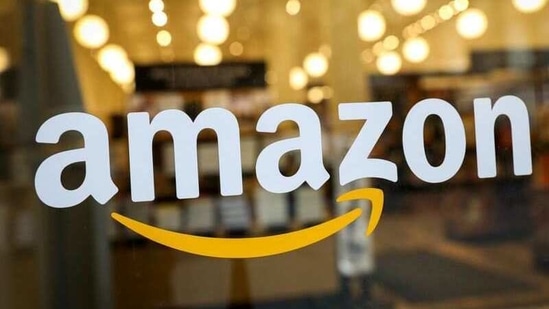Govt plans foreign investment rule changes that could hit Amazon
The 2018 rules forced Amazon and Flipkart to rework their business structures and soured relations between India and the United States.
India is considering revising its foreign investment rules for e-commerce, three sources and a government spokesman told Reuters, a move that could compel players, including Amazon.com Inc, to restructure their ties with some major sellers.

The government discussions coincide with a growing number of complaints from India's bricks-and-mortar retailers, which have for years accused Amazon and Walmart Inc-controlled Flipkart of creating complex structures to bypass federal rules, allegations the U.S. companies deny.
India only allows foreign e-commerce players to operate as a marketplace to connect buyers and sellers. It prohibits them from holding inventories of goods and directly selling them on their platforms.
Amazon and Walmart's Flipkart were last hit in Dec. 2018 by investment rule changes that barred foreign e-commerce players from offering products from sellers in which they have an equity stake.
Now, the government is considering adjusting some provisions to prevent those arrangements, even if the e-commerce firm holds an indirect stake in a seller through its parent, three sources said. The sources asked not to be named because the discussions are private.
The changes could hurt Amazon as it holds indirect equity stakes in two of its biggest online sellers in India.
Amazon said e-commerce created "huge job opportunities" and is a significant contributor to economic growth. "Any major alterations" to the policy will adversely impact small- and medium-sized busineses, it said in an emailed statement.
Walmart and Flipkart did not immediately respond to a request for comment.
Yogesh Baweja, the spokesman for the Ministry of Commerce & Industry, which is working on the issue, confirmed to Reuters any changes will be announced through a so-called "press note," which contains foreign direct investment rules. He did not give details.
"It's a work in progress," Baweja said, adding an internal meeting on the subject last took place about a month ago.
"Of course Amazon's a big player so whatever advice, whatever suggestions, whatever recommendations they make, they are also given due consideration."
FRAYED TIES
The 2018 rules forced Amazon and Flipkart to rework their business structures and soured relations between India and the United States, as Washington said the policy change favoured local e-tailers over U.S. ones.
India's e-commerce retail market is seen growing to $200 billion a year by 2026, from $30 billion in 2019, the country's investment promotion agency Invest India estimates.
Domestic traders have been unhappy about the growth. They see foreign e-commerce businesses as a threat to their livelihoods and accuse them of unfair business practices that use steep discounts to target rapid growth. The companies deny they are acting unfairly.
"The way the government is thinking is that marketplaces are not doing what they are supposed to do. The government wants to tinker with the nuts and bolts of the policy," said one of the sources who is familiar with the talks on the policy changes.
LIMITING WHOLESALE TIES
India's trade minister Piyush Goyal has been critical of e-commerce companies in private meetings and told them to follow all laws in letter and spirit, Reuters has previously reported.
In the face of growing trader complaints and an antitrust investigation, Goyal last year said Amazon was not doing "a great favour to India" by making fresh investments.
Among other changes, the government is considering changes that would effectively prohibit online sales by a seller who purchases goods from the e-commerce entity or its group firm, and then sells them on the entity's websites, two of the sources said.
Under existing rules, a seller is free to buy up to 25% of its inventory from the e-commerce entity's wholesale or another unit and then sell them on the e-commerce website.
A boom in e-commerce in India accelerated last year when the Covid-19 pandemic drove more shoppers online. Flipkart, in which Walmart invested $16 billion in 2018, and Amazon are among the top two players.
"E-commerce has already made its mark for itself in the country, particularly during Covid-19," Commerce Ministry's Baweja said. "They are bound to grow and a conducive environment should be there, which is good for the brick-and-mortar as well as e-commerce."
Stay informed on Business News, TCS Q4 Results Live along with Gold Rates Today, India News and other related updates on Hindustan Times Website and APPs



